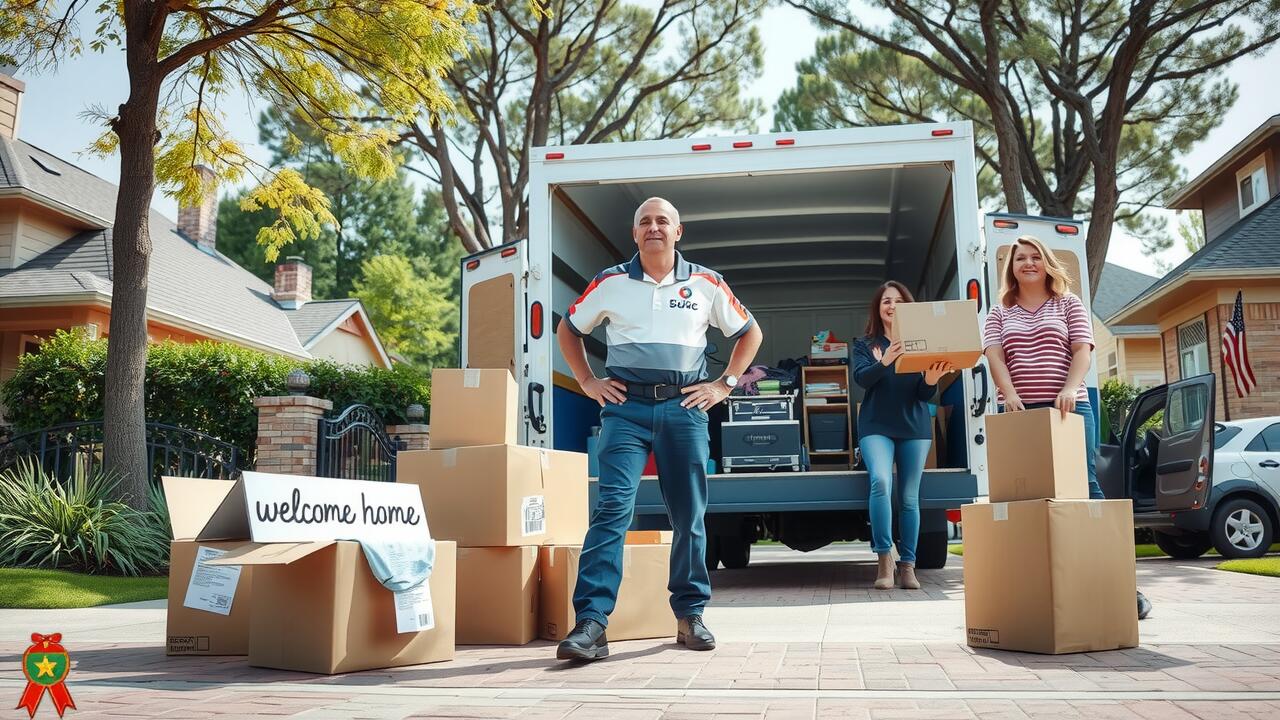
Table Of Contents
Keeping Track of Important Documents
When preparing for a long-distance move, keeping track of important documents is essential. Create a dedicated folder or binder for relocation-related papers, including lease agreements, insurance policies, and any necessary legal documents. Store this folder in a safe and easily accessible location, avoiding any last-minute searches before the move. Consider creating digital copies of these documents as well, ensuring you have backups in case of loss or theft.
Local and Long Distance Moving in West Edge, Seattle requires meticulous organization to ensure a smooth transition. In addition to relocation documents, gather vital personal records such as medical histories, school records, and financial statements. Consider using cloud storage solutions for these files, allowing accessible access from any device. This approach not only minimizes the chance of misplacing important information but also fosters peace of mind during the relocation process.
Organizing Papers and Digital Files
Keeping your important documents organized is essential when planning a long-distance move from Seattle. Start by gathering crucial paperwork such as medical records, financial documents, and personal identification. Consider creating a binder or a dedicated file folder for physical copies. For digital files, utilize cloud storage services to keep your documents accessible from anywhere. Label these folders clearly, allowing for quick retrieval during the moving process.
When it comes to Local and Long Distance Moving in West Edge, Seattle, organization is key. Download apps or use software designed specifically for moving to help manage your documentation electronically. Ensure you back up all your important files to avoid any loss during the transition. Having everything in its place will reduce the risk of last-minute scrambles and keep your focus on the other aspects of your move.
Budgeting for Your Move
When planning a long-distance move from Seattle, it's crucial to create a detailed budget that outlines all possible expenses. Start by considering costs associated with hiring professional movers or renting a truck. Local and long distance moving in West Edge, Seattle, may come with varying price points based on the distance and amount of belongings. Include costs for packing materials, gas, insurance, and any additional services such as storage or packing assistance.
In addition to direct moving costs, factor in expenses related to your new home. This can include utilities setup fees, deposits, and any necessary renovations or furnishings. To ensure a smooth transition, create a moving fund to cover these anticipated costs. Regularly review and adjust your budget as needed, ensuring that you remain on track throughout the moving process.
Estimating Costs and Creating a Moving Fund
Estimating the costs associated with a long-distance move requires careful planning and attention to detail. Begin by gathering quotes from various moving companies specializing in local and long distance moving in West Edge, Seattle. Consider factors such as the distance to your new home, the size of your household, and any additional services you may need, like packing or storage. Creating a detailed list of estimated expenses will provide a clearer picture of what you should expect financially.
Once you have a comprehensive estimate, it's essential to establish a moving fund. Assess your savings and determine how much you can allocate toward this fund. Setting aside a specific amount each month leading up to your move can help cushion the financial impact of the relocation. Including expenses for unexpected costs will ensure that your budget remains flexible and that you're well-prepared for the challenges ahead.
Managing Stress During the Transition
Moving to a new location can stir a whirlwind of emotions. The anticipation of a fresh start often mingles with anxiety about the logistics of the move. Engaging in regular self-care can significantly help alleviate this stress. Activities such as exercise, meditation, and pursuing hobbies offer great outlets for releasing built-up tension. Even simple practices, like taking a walk in a nearby park or immersing yourself in a good book, can provide much-needed respite during this bustling time.
Local and Long Distance Moving in West Edge, Seattle, can bring unique challenges. Establishing a routine can provide stability amid the chaos. Setting aside time each day for relaxation or mindfulness helps maintain a balanced perspective. Encouraging friends or family to check in can also foster a sense of support. Remembering to prioritize mental well-being during a move ensures a smoother transition to your new environment.
Practicing Self-Care Techniques
Relocating can be a significant source of stress, especially during a long-distance move. Practicing self-care is crucial for maintaining your mental health throughout this period. Simple activities such as daily walks, yoga, or meditation can provide a sense of normalcy and calm. Setting aside time for yourself to recharge can make a noticeable difference in how you manage the various tasks at hand, from packing to logistics.
Consider incorporating enjoyments into your routine that offer relaxation or distraction. Listening to music, reading a favorite book, or engaging in hobbies can be effective ways to alleviate stress. Remember, managing your well-being will empower you to handle the challenges of Local and Long Distance Moving in West Edge, Seattle, with a clearer mind. Prioritize self-care to navigate the transition successfully and create a positive environment for your new journey.
FAQS
What are some important documents I should keep track of during my move?
Important documents to keep track of during your move include identification papers, medical records, school transcripts, financial documents, and any contracts related to your new home. It's best to keep these in a dedicated folder or digital file for easy access.
How can I organize my papers and digital files effectively?
To organize your papers, categorize them by type (e.g., medical, financial, legal) and use labeled folders. For digital files, consider using cloud storage services to create folders for each category, ensuring all important documents are backed up and easily accessible.
What should I include in my moving budget?
Your moving budget should include costs such as hiring movers, packing supplies, transportation (fuel or plane tickets), temporary housing (if needed), and any deposits required for your new home. Don't forget to include a buffer for unexpected expenses.
How can I estimate the costs of my long-distance move?
To estimate the costs of your long-distance move, research various moving companies and request quotes. Additionally, consider calculating the costs of packing supplies, travel expenses, and any potential fees related to your new home, such as utility setup or storage.
What self-care techniques can help manage stress during a long-distance move?
Practicing self-care techniques such as regular exercise, mindfulness meditation, maintaining a healthy diet, and getting enough sleep can help manage stress. Additionally, setting aside time for relaxation and leisure activities can also be beneficial during the transition.
